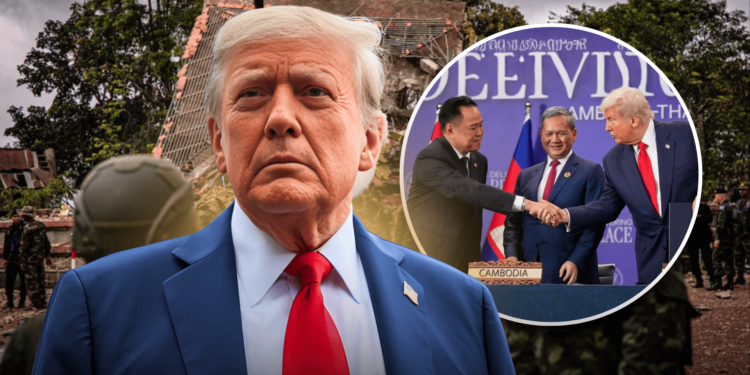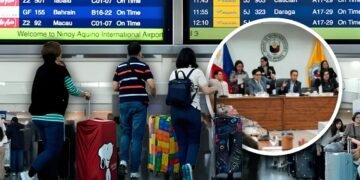Thailand and Cambodia signed a long-awaited peace deal Sunday, ending months of deadly border clashes that killed dozens and displaced hundreds of thousands. U.S. President Donald Trump witnessed the ceremony in Malaysia, marking one of his most high-profile diplomatic moments in the region this year.
The signing almost didn’t happen. Thailand’s Prime Minister Anutin Charnvirakul postponed his travel plans following the death of Queen Sirikit, the revered mother of King Vajiralongkorn and wife of the late King Bhumibol, who passed away Friday at 93. “I cancelled my trip to Malaysia today. However, regarding the peace deal with Cambodia, I’ve asked to reschedule for tomorrow morning instead,” Anutin said before heading to Kuala Lumpur.
The agreement, inked at the ASEAN summit, includes the release of Cambodian prisoners and the withdrawal of heavy artillery from the disputed border. Regional monitors will oversee compliance to prevent renewed fighting. The deal builds on a U.S.-brokered ceasefire that halted intense clashes in July — the deadliest fighting between the two nations in decades.
Trump, who arrived in Kuala Lumpur as part of his Asia tour, praised the accord as “a major step toward lasting stability.” He said the peace effort proved that “strong diplomacy backed by action works.”
Malaysian Prime Minister Anwar Ibrahim, who hosted the signing, called the event “an act of courage” and commended both sides for choosing reconciliation over escalation. Cambodian Prime Minister Hun Manet described it as a “historic day,” while Anutin said it laid “the foundation for lasting relations.”
Thai foreign ministry spokesperson Nikorndej Balankura emphasized that the work isn’t over. “It’s not an end in itself,” he said. “Work has just begun.”
The peace deal ends one of Southeast Asia’s bloodiest modern border conflicts and gave Trump a headline-grabbing moment on the global stage — arriving just in time to watch two nations bury the hatchet.












